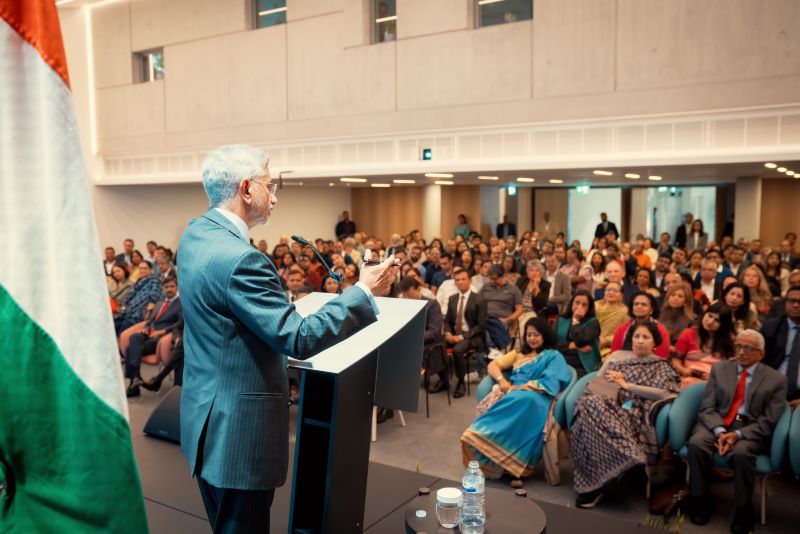
'Was dealing with 1984 hijack situation when I discovered my father was on flight,' S Jaishankar reveals
External Affairs Minister S Jaishankar Friday revealed that his father was one of the passengers of a hijacked flight in 1984 and therefore had perspective from "both sides" in such situations - that of the family members and those in the government.
Jaishankar revealed this personal experience during a community event in Geneva when he was asked about the recently released television series on the hijacking of IC-814 in 1999.
The Foreign Minister shared that how as a young officer in 1984, he was part of the team dealing with the hijack situation. While on the other hand, he was part of the group of families putting pressure on the government.
During the question and answer session after his address to the Indian community, a member of the audience asked the Minister about his comments on the recently released series 'IC-814: The Kandahar Hijack' on Netflix.
Jaishankar said these types of series, though he clarified that he has not watched the Netflix one, often show "the bureaucracy and the government dealing with hijacking in poor light."
"In 1984 there was a hijacking. I was a very young officer. I was part of the team that was dealing with it. I rang up my mother, actually, to tell her, 'Look, I can't come. There's a hijacking," he said.
"And then I discovered, my father was on the flight. The flight ended up in Dubai. It's a long story, but fortunately, nobody got killed. It could have ended as a problem," he added.
On July 5, 1984, an Indian Airlines flight was hijacked from Pathankot and taken to Dubai. After more than 36 hours, 12 pro-Khalistani hijackers surrendered to authorities and released all 68 passengers and six crew members unharmed.
Jaishankar was an IFS officer then and became a minister after his retirement. His father K Subrahmanyam was an IAS officer and a regular commentator on strategic issues.
"And it was interesting because on the one hand, I was part of the team which was working on the hijacking. On the other hand, I was part of the family members who are pressing the government for the hijacking. So actually, I have that very unique window on both sides, in that sense of the problem," he added.
"So, often these are situations and movie guys don't make the governments look good. The hero is supposed to look good. Then nobody would watch the movie and you got to accept that," he said prompting laughter from the audience.
The Netflix series is about Indian Airlines Flight 814, commonly known as IC 814, that was hijacked on Dec 24, 1999, by five members of Harkat-ul-Mujahideen. The aircraft carried 190 occupants which included 179 passengers and 11 crew members including Captain Devi Sharan, first officer Rajinder Kumar, and flight engineer Anil Kumar Jaggia.
The aircraft was flown to Amritsar, Lahore, and Dubai. While in Dubai, the hijackers released 27 passengers including a critically injured male hostage, who had been stabbed by the hijackers multiple times. Later, on 25 December, the hijackers forced the aircraft to land in Kandahar in Afghanistan.
On December 27, after two days of internal discussions, the Indian Government sent a team of negotiators headed by Vivek Katju from the Ministry of Home Affairs, which also included officials Ajit Doval and C.D. Sahay.
The motive for the hijacking was to secure the release of various prisoners held under terrorism charges in India. The hijacking is seen as a part of the millennium attack plots in late 1999 and early 2000 by Al-Qaeda linked terrorists.
After days of negotiations, India agreed to release three men it had imprisoned for terrorism – Ahmed Omar Saeed Sheikh, Masood Azhar and Mushtaq Ahmed Zargar – in exchange for the hostages.
Support Our Journalism
We cannot do without you.. your contribution supports unbiased journalism
IBNS is not driven by any ism- not wokeism, not racism, not skewed secularism, not hyper right-wing or left liberal ideals, nor by any hardline religious beliefs or hyper nationalism. We want to serve you good old objective news, as they are. We do not judge or preach. We let people decide for themselves. We only try to present factual and well-sourced news.







